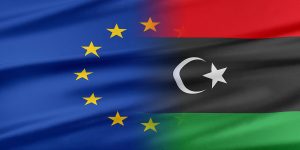By Sami Zaptia.
London, 3 October 2020:
The EU announced yesterday that it has removed Ageela Saleh, head of Libya’s Tobruk-based House of Representatives (HoR), and Nuri Abu Sahmain, former head of the internationally unrecognised General National Congress (GNC), from the list of individuals and entities subject to restrictive measures.
The two leading Libyan political figures had been subject to EU restrictive measures – a travel ban and an asset freeze – since 2016. The EU stated that the delisting of Saleh was agreed in light of his recent ‘‘constructive engagement in support of a negotiated political solution’’ to the Libyan crisis. The EU said it will continue to follow his behaviour closely, notably in relation to his support for the Berlin Process and for the efforts of the UN mission to Libya (UNSMIL). The delisting of Abu Sahmain was agreed based on the overall ‘‘absence of any recent role in the Libyan political process’’.
The EU welcomed the announcements made on 21 August by Faiez Serraj and Ageela Saleh, ‘‘which accelerated promising developments in Libya and created a window of opportunity to move the Libyan transition forward towards completion through a Libyan-led and Libyan-owned political process’’.
The EU said its decision underlines the strategic use of the sanctions regime, following developments on the ground. Restrictive measures are intended to bring about a change in policy or activity by entities and individuals responsible for malign behaviour, and are of a proportionate, targeted and non-punitive nature. Delisting is appropriate wherever the criteria for listing are no longer met, as was the case here, it concluded.










